We Will Remember Them

A lot has been written about our brave young boys who went off to many theatres of war and came back maimed or didn't come back at all, but very little has been written about the effects that these wars have had on Australian families who are left behind to battle on.
- Louise Evans, author of “Passage to Pusan”
The Battle for Hill 410
Moving up a heavily defended, snow-covered hill near Wonju, South Korea, on March 7, 1951, Sergeant Vincent J. Healy, a 24-year-old machine gunner with the 3rd Battalion, Royal Australian Regiment (3RAR), had no idea what was about to unfold.
Minutes later, a withering barrage of Chinese machine gun and mortar fire erupted. With bullets and shrapnel ripping through the air, Healy and his buddies became pinned down. What happened to the young Sergeant over the next few hours isn’t clear, but by nightfall, Hill 410, littered with dead and dying men, was secure. The men of 3RAR had taken their objective.
The victory, however, had come at a high price: Twelve Australians had been killed. Healy, a WWII veteran and the eldest of 10 children, was one of them.
Sgt. Healy’s body was later recovered, moved from the battle line, and interred at the United Nations Memorial Cemetery in Pusan (today called Busan).
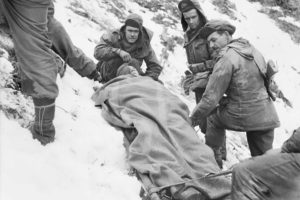
Men of 3 RAR carrying a wounded soldier from the front lines. (PC: www.anzac.online-exhibition.net)
A Mother’s Devotion
When Healy’s mother, Thelma, received the news of her son’s death, she was devastated. "For many families back then, there were no bodies, there were no funerals – they just got a knock on the door and a telegram,” Thelma’s granddaughter, Louise Evans, told a Brisbane Times reporter. “It was a period of incredible misery and suffering.”
With Vincent, the “linchpin” of the family, gone, and Mr. Healy, an abusive husband and parent, eventually abandoning them, Thelma and her nine children were now alone. Heartbroken, depressed, and destitute, she suffered through the darkest days of her life. Determined to carry on, she promised herself that before she died she would visit her son’s grave in Korea.
Over the next ten years, Thelma Healy worked in a factory, did her best to take care of her children, and saved whatever money she could for a voyage to Busan.
The Trip of a Lifetime
In 1961, Mrs. Healy purchased a ticket for Korea. Her perseverance had paid off. She was on her way to see her son’s gravesite. "My grandmother was a woman of no means, a very poor woman. It was a trip of a lifetime for her to visit her son's grave," Evans told a SBS reporter in 2017.

Vincent Healy with him mother, Thelma, before leaving for Korea. (PC: Passage to Pusan)
During her grueling trip to the country where her son had fought and died, she kept a diary. In it she recorded every hardship and challenge she faced as the first woman from Australia to make the voyage to the UN cemetery.
Her trip to Vincent’s grave caught the attention of Korean newspapers around the country and numerous stories were written about the courageous woman from Brisbane, Australia who had lost her son during the Korean War and traveled to Busan to see his grave.
The Letter
One of the many people to read the inspiring story of Thelma Healy was Kim Cheung-keun, a Korean War widow who empathized with Thelma’s loss. Over the next few months, Mrs. Kim unsuccessfully tried to contact Thelma. As a last resort, she decided to write a letter to the Korean Embassy in Australia. When the embassy staff received it, they translated the letter into English and forwarded it to Mrs. Healy.
Thelma cried for days after reading it:
Dear Mrs. Healy,
I pray to God that you receive this letter. I have tried to trace your address in so many ways but I failed. Now I am sending this letter through the Korean Embassy in Australia. The Korean newspapers reported about you were full of sympathy.
This Korea only survived because of the sacrifice of your son and is now marching forward peacefully with the birth of the Third Republic. Now Korea can go forward with other free countries.
I wished I could have known you when you visited your son's grave. I lost my husband in the Korean War during the Nakdong River Battle. At that time I had two sons, one aged 3 years and one aged one year. I have kept my two sons and brought them up myself. If Korea had not received sacrifices like your son's, then Korea would be smashed by Communism this day.
Mrs. Healy, I would like to express my deep appreciation once again and I pray to God to comfort you. The necklace [rosary], which you placed upon your son’s grave, is still sparkling bright in the sunshine. Please let me have your son's date of birth and the date he was killed in action. I would like to place a bouquet of flowers on your son's grave, as you, his mother, would like to do. Please convey my messages of sympathy to any other bereaved families you may know. I sincerely wish to have further correspondence with you.
A Lasting Friendship
"Words cannot express my feelings when I received Mrs. Kim's note - it was so beautifully worded,” Mrs. Healy told the Brisbane Courier-Mail in 1964.
Thelma and Cheung-keun became close friends, frequently writing to one another and sharing their life-long experiences. Good to her word, Mrs. Kim visited Sgt. Healy’s grave every year on his birthday and on UN Memorial Ceremony Day until she passed away in 2014.
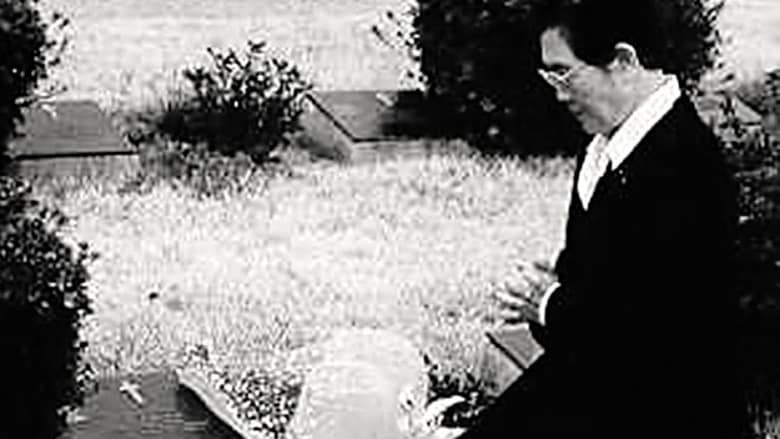
Mrs. Kim Cheung-keun at Sgt. Healy’s grave. (PC: Passage to Pusan)
Remarkably, the two women’s granddaughters Louise Evans and Gracie E. Kim met and became friends, continuing a family connection started nearly sixty years ago. “Our late grandmothers would love it," Louise said in a SBS News story.
Postscript
A few years ago, Thelma’s red leather-bound diary was given to her granddaughter, Louise. “The diary had been at the bottom of an aunt’s draw, not hidden — just forgotten. Its pages were a revelation, recounting in graphic page-turning detail her brave self-funded journey,” Louise recounted in the Daily Telegraph.
After reading the journal, Ms. Evans, who never knew her uncle and was only eight when her grandmother died, began researching the story. In 2016 she published, Passage to Pusan, a book about Sgt. Healy and her grandmother’s 15,000-kilometer odyssey to Korea.
The book received critical acclaim and has spawned a documentary film by the same title, Passage To Pusan.
Nearly 18,000 Australians fought in the Korean War, and 339 made the ultimate sacrifice. We will remember them.
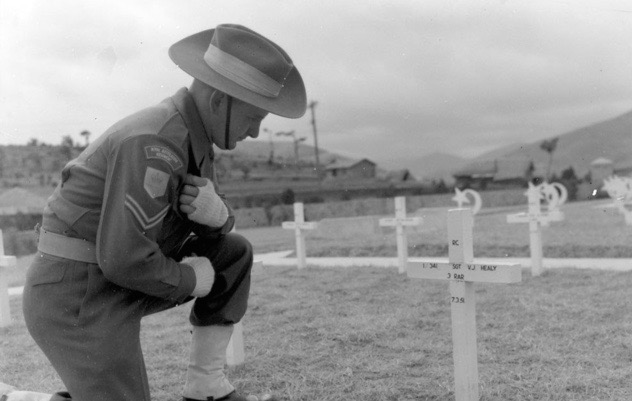
Top/Feature Photo: 3RAR attacking an enemy position in Korea, 1951. (PC Australian War Museum)
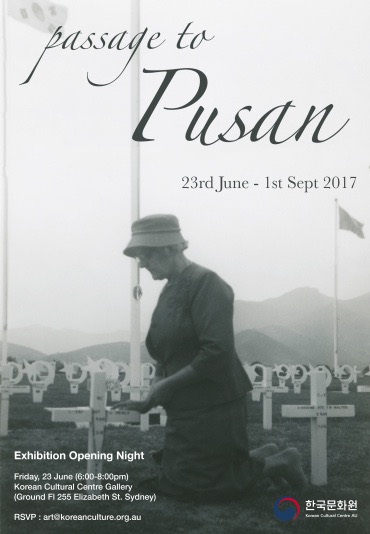
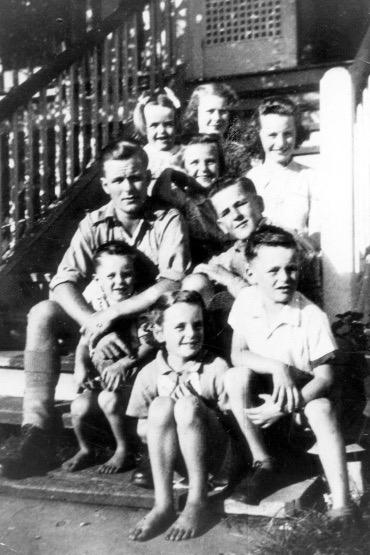
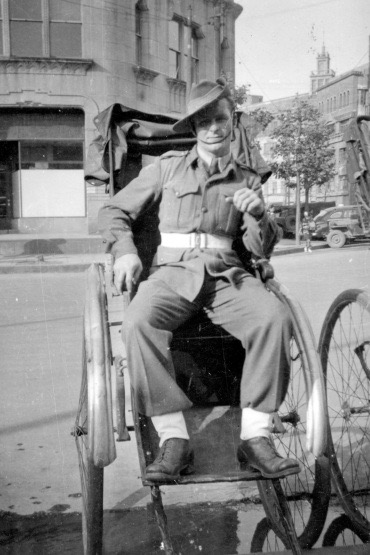
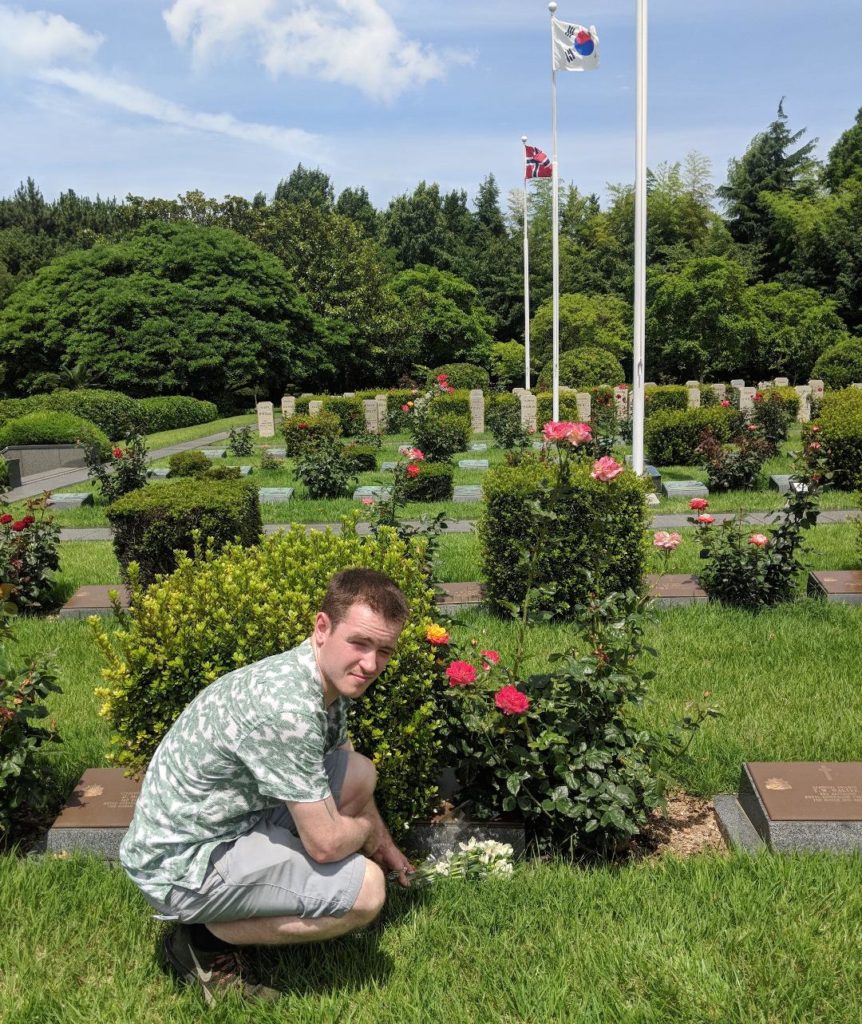
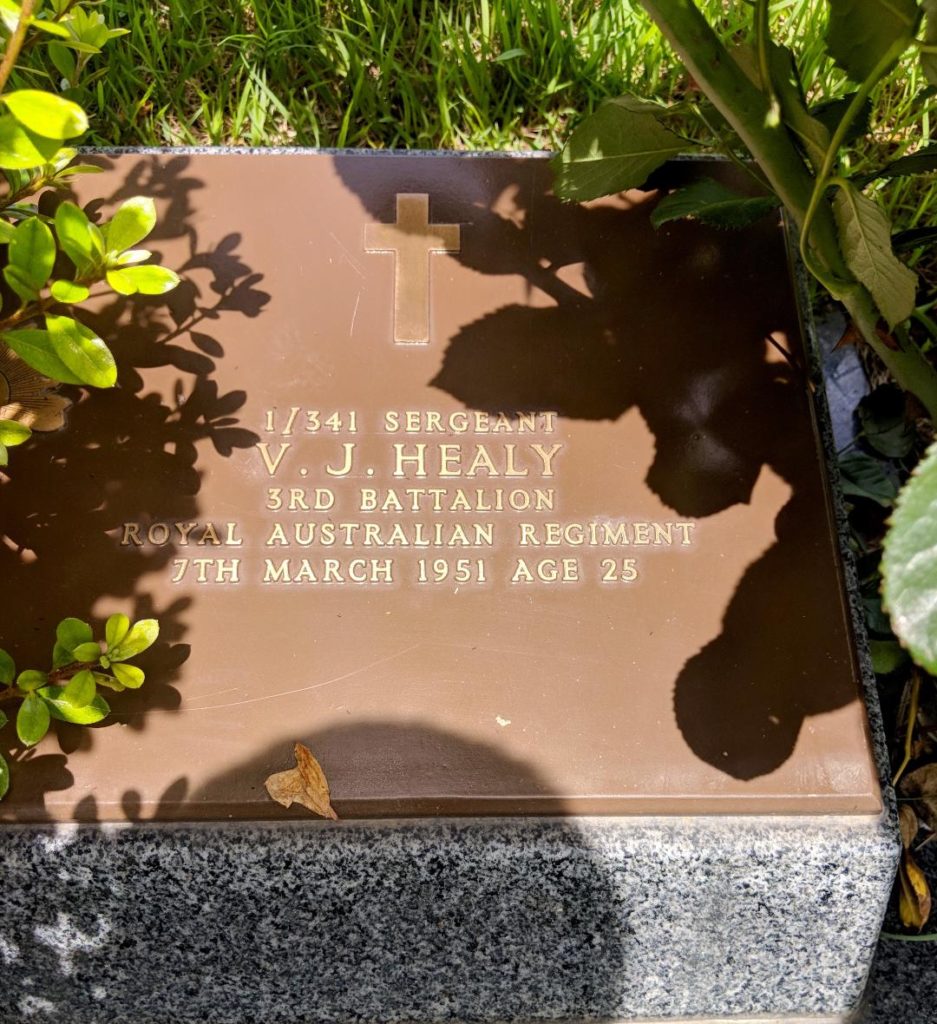
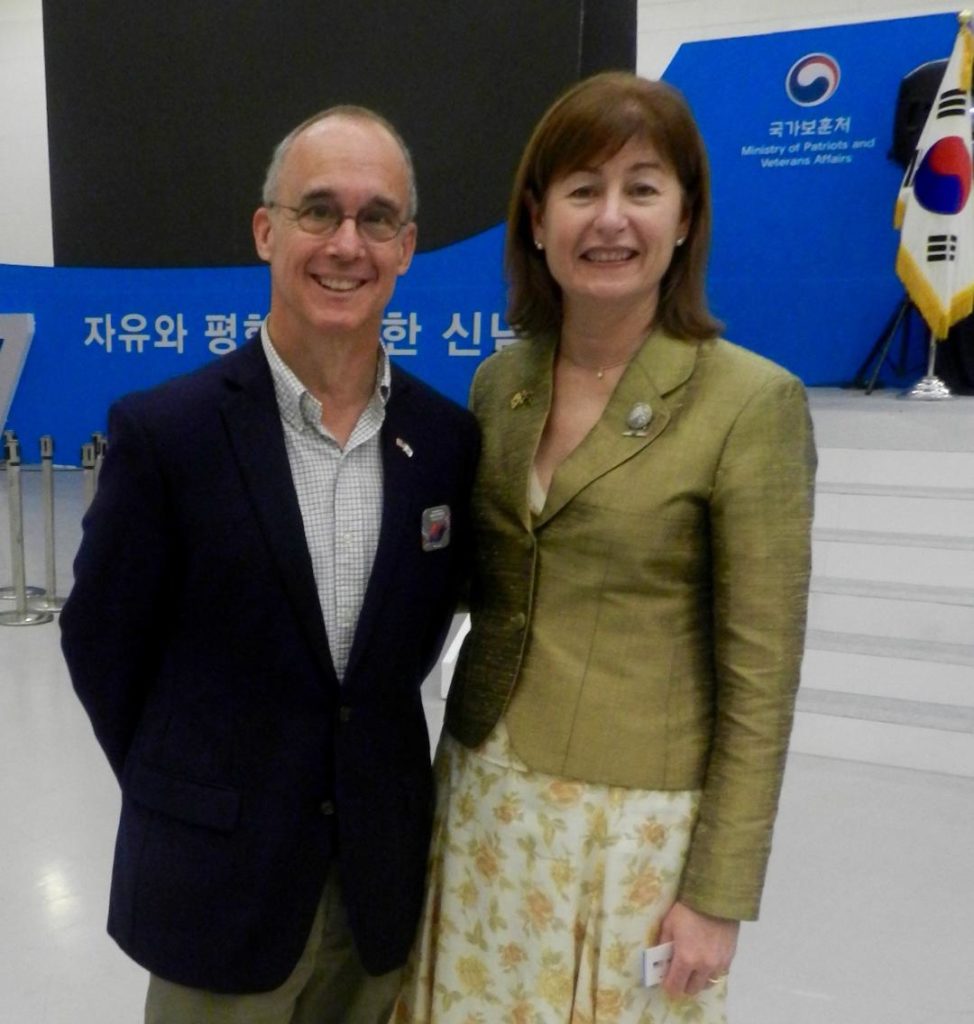
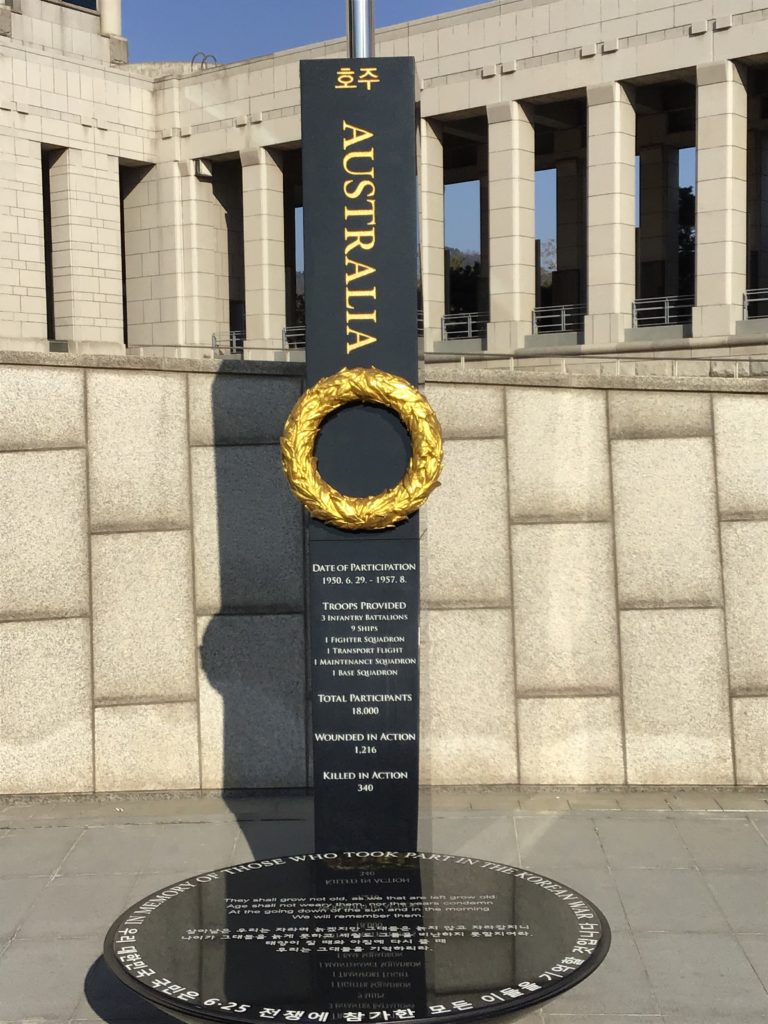
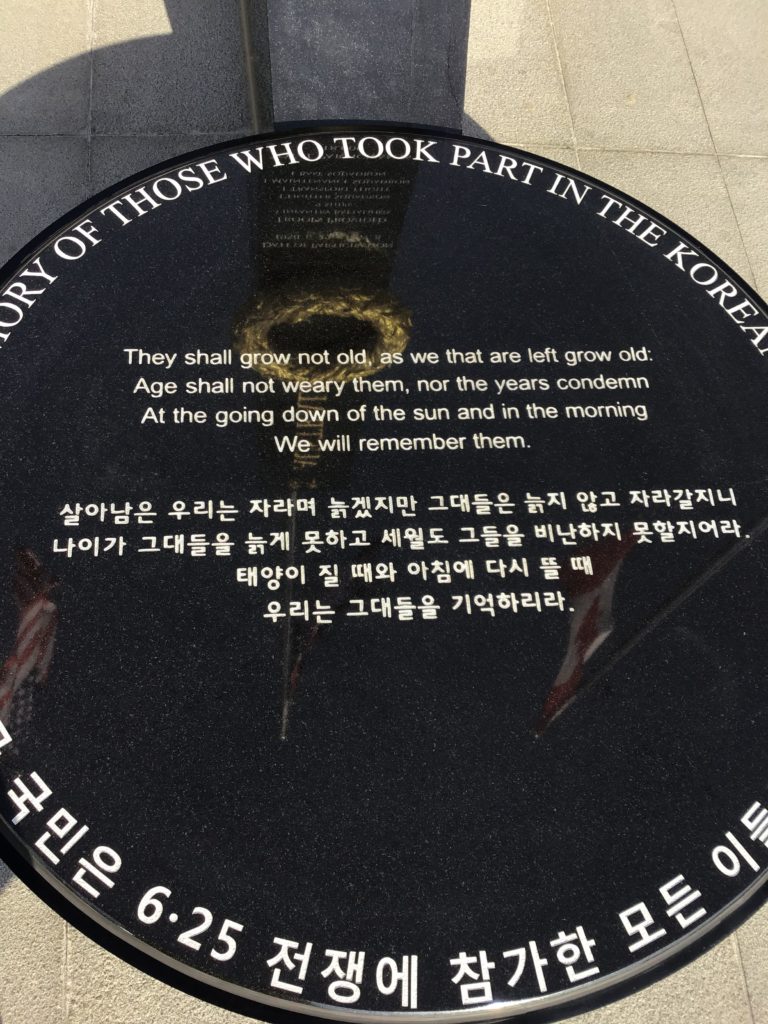
I’ve read this book and it’s a great insight into the Korean Conflict, the impact of war on families, the world in the 1950s, and the drama surrounding one large Irish Catholic clan.
Would recommend anyone interested in those subjects going to the “Passage to Pusan” website and getting a copy of the book.
Thanks for your insight and suggestions, Mike. We’re hoping many people will want to learn more about these topics and will check out the book.
Because of books like “Passage to Pusan” and others, the Korean War is receiving more attention. Great to see this.
Thank you Ned for taking the time and trouble to tell share this story of loss, love and redemption. It was also great to meet you at the ceremony to mark the 65th Anniversary of the Korean War Armistice in Seoul last year and to meet some descendants of the 1950 Hungnam Evacuation . It’s an important and joyful story that needs to be shared with a wider international audience. I look forward to further developments. Thank you and Best wishes, Louise Evans, Author and Documentary Maker – Passage to Pusan Read more here https://www.facebook.com/passagetopusan/ and here https://passagetopusan.com/buy-passage-to-pusan/
It was honor to share your grandmother’s story, Louise. Thanks for all you’ve done to pay tribute to the countless Australian families who lost loved ones during the Korean War. We owe all these brave men and their families so much.
Hope to see you on your next visit to Seoul.
Hi Thomas, Your father did an amazing job constructing the UNMCK and it means the world to families like mine who have loved ones buried there. Back in 1961 when my grandmother Thelma Healy journeyed to war-torn South Korea to visit her son Vince’s grave for the first and only time in Busan, here’s what she wrote: “At last I have found peace. All the heartache and longing has been washed away. He is lying amidst such beauty. Its beauty will stay with me always.” I visited the grave also to film a documentary about the book last year. It remains a peaceful, spiritual place of great beauty. Best wishes Louise Evans, author and documentary marker Passage to Pusan
Thank-You Louise,
I truly wish my father could have read your Grandmothers comments. Although he never publicly showed how deeply his work impacted him both positively and negatively, he would have looked down at the ground shyly and in private smiled at your Grandmothers comments and said, “Thank-you ma’am. It was my honor to take care of your son.”
When I was in college, a friend get me a job as a grounds keeper at Arlington National Cemetery. I was so excited because the pay was great for 1978, that I rushed home to tell my father. At the time I didn’t really know about his career with the Graves Registration Service, just that he was in the Army. His only words were, “Congratulations son, I know a little something about that”. That’s all he said. I didn’t find out until many years later and after he passed away how “little” he really knew.
Thank-you
Great story, Thomas. Thanks for sharing these thoughtful comments.
A mothers love must always be respected….
Thank you for reading the blog and commenting, Clarence. It’s terrible what families go through after loved ones die in a war or come home a different person. Glad to do my part to share stories of those who have sacrificed so much.
We enjoyed reading your story on your website and appreciate the good work you do for servicemen and women, veterans, and their families. You might want to check out Jenny LaSala’s FB page and website. She has a similar mission as you.
Again, many thanks.
As you know from a prior correspondence with me, my father, LTC Joseph McGuire, was the captain in charge of the 114th Quartermaster American Graves Registration Service Company that was tasked by General Matthew B. Ridgeway with constructing the UN cemetery at Busan in late December 1950. It is my dream and will be my “trip of a lifetime” to some day soon visit the Cemetery in Busan and other places in Korea were my father served. I would like to pay my respects by visiting the sites were my father and the soldiers of the American Graves Registration Service provided dignified places of rest to all the soldiers of Korea, the Military of the United States and all the UN nations that participated in the conflict. It’s story’s like Mrs Healey s that encourages me to do everything I can to make my dream happen. My father would be very happy to know that his efforts made such a profound difference in a families life. The work he did was very rarely even discussed and yet was so important to so many people. I’ve begun to follow another facebook page, “Passage to Pusan”. Thank-you. I enjoy your posts and writing.
Thanks so much for sharing this, Thomas. You’re right- your father’s work was important, and it’s had a lasting impact on Korea and so many families around the world. The UN Cemetery has a steady stream of visitors, and this includes many dignitaries. You’ve probably seen this on their FB page.
I know you are proud of your father’s contribution, as you should be. We are grateful for men like him who had roles that were rarely discussed and who seldom received the recognition they deserved. I salute him for his service.
We look forward to meeting you in person when you come to Korea and appreciate your support for our FB page and blogs.
Hello Thomas. I’m the director of International Affairs at the UN Memorial Cemetery in Busan. I hope you do have the chance some day to visit the cemetery; it truly is a special place, and you have every right to be proud of your father’s role in creating it. If you do come, please get in touch with me and it would be my pleasure to give you a tour of the grounds. I can be reached at our Facebook page, or at jbocskay[at]unmck[dot]or[dot]kr. Be well, and keep in touch.